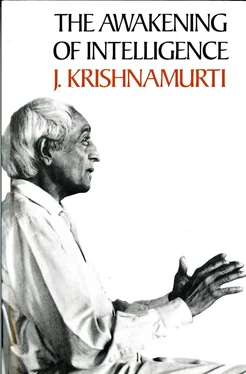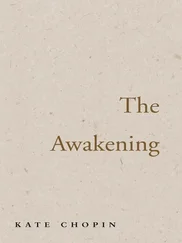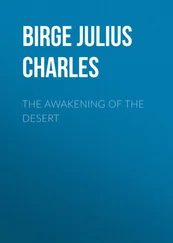Naudé: Architecture.
KRISHNAMURTI: Architecture, building railways, going to the moon and so on, there must be a design, a planning, a very coordinated, intelligent operation taking place. We are surely not mixing up the two: there must be planning, order, cooperation, the carrying out together of certain plans, a well laid-out city, a community—all that demands planning. We are talking of something entirely different. We are asking if there is absolute order in human behaviour, if there is absolute goodness, as order, in oneself and therefore in the world. And we said order is not planned, can never be planned. If it is planned, then the mind is seeking security, because the brain demands security; seeking security it will suppress, or destroy, or pervert what is and try to conform, imitate. This very imitation and conformity is disorder, from which all the mischief begins, the neuroses and various distortions of the mind and the heart. Planning implies knowledge.
Naudé: Thinking.
KRISHNAMURTI: Knowledge, thinking and ordering the thought as ideas. So we are asking: is virtue the outcome of planning? Obviously it is not. The moment your life is planned according to a pattern then you are not living, you are merely conforming to a certain standard and therefore that conformity leads to contradiction in oneself. The “what is” and the “what should be”, that breeds contradiction and therefore conflict. That very conflict is the source of disorder. So order, virtue, goodness is in the moment of the now. And therefore it is free of the past. That freedom can be relative.
Naudé: How do you mean?
KRISHNAMURTI: One may be conditioned by the culture in which one lives, by the environment and so on. One either frees oneself totally from all the conditioning and therefore is absolutely free; or there may be partial unconditioning.
Naudé: Yes, get rid of one set of conditions . . .
KRISHNAMURTI: . . . and fall into another.
Naudé: Or just discard one set like Christianity and its taboos.
KRISHNAMURTI: So that slow discarding may appear orderly, but it is not; because the slow peeling off of conditioning may temporarily give the appearance of freedom, but is not absolute freedom.
Naudé: Are you saying that freedom is not the result of a particular operation with regard to one conditioning or another?
KRISHNAMURTI: That’s right.
Naudé: You have said that freedom is at the beginning and not at the end. Is that what you mean?
KRISHNAMURTI: Yes, that’s it. Freedom is now, not in the future. So freedom, order, or goodness, is now, which expresses itself in behaviour.
Naudé: Yes, else it has no meaning.
KRISHNAMURTI: Otherwise it has no meaning at all. Behaviour in relationship not only with a particular individual, who is close to you, but behaviour with everybody.
Naudé: In the absence of all those elements of the past which make most people behave, what will make us behave? This freedom seems to so many people such a disincarnate thing, such a bleak sky, such an immaterial thing. What is it in that freedom which will make us behave in the world of people and events with order?
KRISHNAMURTI: Sir, look. We said in the last conversation that I am the world and the world is me. We said the consciousness of the world is my consciousness. My consciousness is the world’s consciousness. When you make a statement of that kind, either it is purely verbal and therefore has no meaning at all, or it is something actual, living, vital. When one realises that it is vital, in that realisation is compassion—real compassion, not for one or two, but compassion for everybody, for everything. Freedom is this compassion, which is not disincarnate as an idea.
Naudé: As a state of withdrawal.
KRISHNAMURTI: My relationship is only in the now, not in the past, because if my relationship is rooted in the past I am not related now. So freedom is compassion, and that comes when there is the real deep realisation that I am the world, the world is me. Freedom, compassion, order, virtue, goodness are one; and that is absolute. Now what relationship has non-goodness—which has been called evil, sin, original sin—what relationship has that with this marvellous sense of order?
Naudé: Which is not the product of thinking, of civilisation, of culture.
KRISHNAMURTI: What is the relationship between the two? There is none. So when we move away from this order—move away in the sense of misbehave—does one enter into the field of evil, if we can use that word? Or is evil something totally apart from the good?
Naudé: Whether deviation from the order of goodness is already an entry into the field of evil, or can these two not even touch at all?
KRISHNAMURTI: That’s right. I may misbehave. I may tell a lie. I may consciously or unconsciously hurt another, but I can clear it. I can wipe it away by apologising, by saying “forgive me”. It can be done immediately.
Naudé: It can be ended.
KRISHNAMURTI: So I am finding out something, which is: the non-ending of it, carrying it over in one’s mind day after day, as hate, as a grudge . . .
Naudé: . . . guilt, fear . . .
KRISHNAMURTI: . . . does that nourish the evil? You follow?
Naudé: Yes.
KRISHNAMURTI: If I continue with it, keep within my mind the grudge which I bear against you, carry it on day after day, the grudge which involves hate, envy, jealousy, antagonism—all that is violence. So what is the relationship of violence to evil and goodness? We are using the word “evil” very . . .
Naudé: . . . cautiously.
KRISHNAMURTI: Cautiously. Because I don’t like that word at all. So what is the relationship between violence and goodness? Obviously none at all! But the violence which I have cultivated—whether it is the product of society, the product of the culture, the environment, or inherited from the animal—that violence, by becoming aware of it, can be wiped away.
Naudé: Yes.
KRISHNAMURTI: Not a gradual wiping away; wipe it away as you wipe out a clean . . .
Naudé: . . . take a mark off the wall.
KRISHNAMURTI: Then you are always in that goodness.
Naudé: Are you saying that goodness is a wholly negative affair then?
KRISHNAMURTI: Yes, it must be.
Naudé: And in that way the negative is not related at all to the positive, because it is not the result of a gradual decline or accumulation of the positive. The negative exists when the positive is wholly absent.
KRISHNAMURTI: Yes; put it round the other way. The negation of the grudge, the negation of violence and the negation of the continuity of the violence, that negation of it is the good.
Naudé: Is the emptying.
KRISHNAMURTI: The emptying of violence is the richness of the good.
Naudé: Therefore the good is always intact.
KRISHNAMURTI: Yes, it is never broken up, not fragmented. Sir, wait! So is there such a thing as absolute evil? I don’t know if you have ever considered this: I have seen in India little statues made of clay in which needles, or thorns, have been put; I have seen it very often. The image is supposed to represent a person whom you want to hurt. In India there are very long thorns, you have seen them, from bushes, and they are stuck into these clay statuettes.
Naudé: I didn’t know they did that in India.
KRISHNAMURTI: I have seen it. Now there is a determined action to produce evil in another, to hurt another.
Naudé: An intent.
KRISHNAMURTI: The intent, the ugly, deep, hatred.
Naudé: Deliberate. This must be evil, Sir.
Читать дальше












